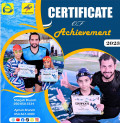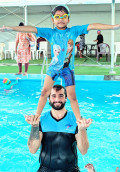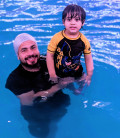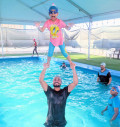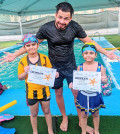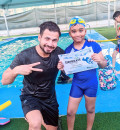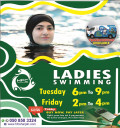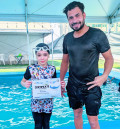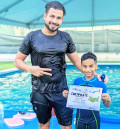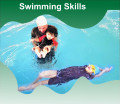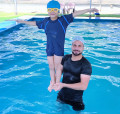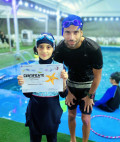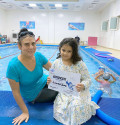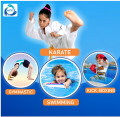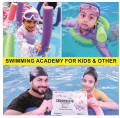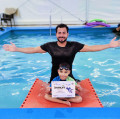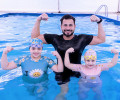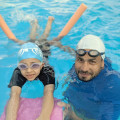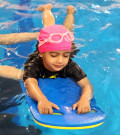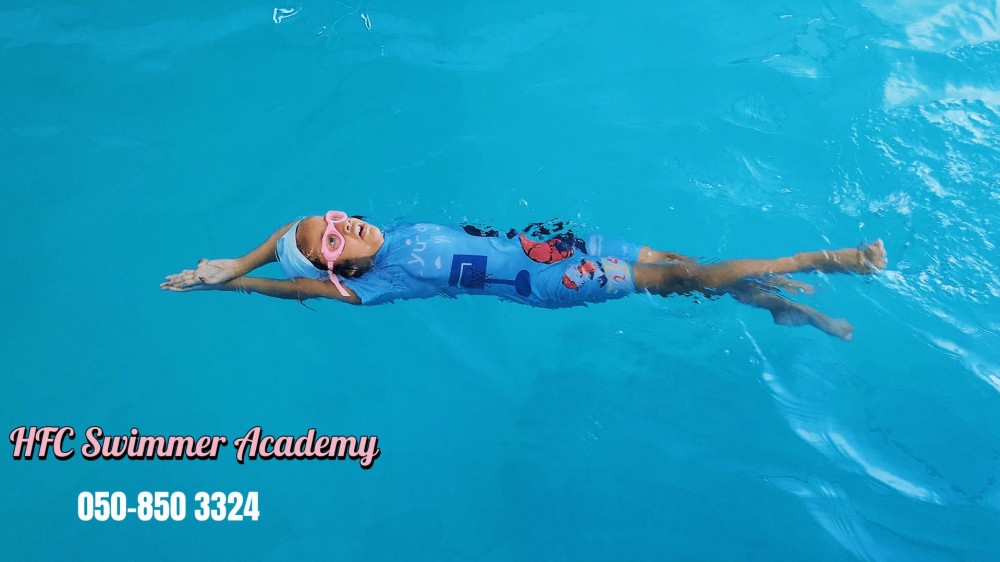
Kids Talented Swimming Skills Looking Healthy and Smart
2023-12-06 - swimmingIn a world where physical activity plays a crucial role in a
child's overall development, swimming stands out as a versatile and beneficial
skill. As parents, guardians, or educators, understanding the significance of
nurturing kids' swimming talents can contribute not only to their physical
health but also to their mental and social well-being.
Introduction
Definition of Talented Swimming
Importance of Swimming Skills in Kids
Swimming is more than just a recreational activity. It is a
life skill that enhances physical fitness, cognitive abilities, and social
interaction. This article explores the journey of kids with talented swimming
skills and the positive impact it has on their overall development.
Benefits of Swimming for Kids
Physical Health
Swimming provides a full-body workout, promoting
cardiovascular health, muscle development, and flexibility in kids. It helps in
maintaining a healthy weight and strengthens the immune system.
Mental Development
The cognitive benefits of swimming include improved
concentration, enhanced sensory awareness, and heightened problem-solving
skills. The rhythmic nature of swimming has a calming effect on the mind.
Social Skills Enhancement
Participating in swimming lessons and competitions exposes
kids to a social environment, fostering teamwork, communication, and
sportsmanship.
Identifying Talent in Kids
Early Signs of Swimming Talent
Observing a child's comfort in water, natural buoyancy, and
quick learning of swimming techniques are early indicators of swimming talent.
Identifying these signs early allows for targeted nurturing.
Nurturing and Developing Talent
Creating a supportive and encouraging environment is
crucial. Enrolling kids in age-appropriate swimming lessons and providing
positive reinforcement help in nurturing their swimming skills.
Incorporating Swimming into Kids' Routine
Age-Appropriate Swimming Lessons
Choosing the right swimming lessons based on a child's age
and skill level ensures a gradual and comfortable progression. It's essential
to strike a balance between challenge and enjoyment.
Creating a Safe and Supportive Environment
Safety should always be a priority. Implementing safety
measures, including supervision and proper equipment, creates an environment
where kids can confidently explore and enjoy swimming.
Balancing Swimming with Other Activities
While swimming is beneficial, it's important not to
overwhelm kids. Balancing swimming with other activities ensures a well-rounded
development without causing burnout.
The Role of Nutrition in Supporting Swimming Talents
Importance of a Balanced Diet
A healthy diet rich in nutrients, vitamins, and minerals is
crucial for supporting the energy demands of swimming. Proper nutrition
contributes to optimal physical performance.
Hydration for Optimal Performance
Staying well-hydrated is key to preventing fatigue and
ensuring peak performance during swimming activities. Parents and caregivers
should emphasize the importance of regular hydration.
Showcasing Kids' Swimming Achievements
Building Confidence
Recognizing and celebrating small achievements boosts a
child's confidence. Whether it's mastering a new stroke or completing a longer
swim, acknowledging progress is essential.
Celebrating Milestones
Organizing events to showcase kids' swimming talents not
only boosts their confidence but also creates a sense of accomplishment.
Celebrating milestones motivates kids to continue refining their skills.
Challenges and Solutions
Overcoming Fear of Water
Addressing and overcoming the fear of water is crucial. Gradual
exposure, positive reinforcement, and patient guidance can help kids conquer
their fear and develop a love for swimming.
Dealing with Burnout
To prevent burnout, it's essential to balance the intensity
of training with periods of rest and recreation. Recognizing signs of burnout
and adjusting the training routine accordingly is key.
Swimming Competitions for Kids
Local and Regional Events
Participating in local and regional swimming competitions
provides kids with a platform to showcase their skills, interact with peers,
and experience healthy competition.
Preparing for Competitions
Coaches and parents play a vital role in preparing kids for
competitions. This includes setting realistic goals, maintaining a positive
mindset, and emphasizing the importance of sportsmanship.
Balancing Academics and Swimming
Time Management Tips
Balancing academics and swimming requires effective time
management. Establishing a schedule that includes dedicated time for both
academics and swimming helps kids excel in both areas.
Support from Educational Institutions
Collaboration between parents, coaches, and educational
institutions is crucial. Schools that support and recognize the importance of
extracurricular activities like swimming contribute to a child's holistic
development.
Stories of Successful Kids Swimmers
Inspiring Tales
Highlighting success stories of kids who started with a
passion for swimming and went on to achieve significant milestones inspires
others to pursue their talents.
The Path to Success
Understanding the journey of successful young swimmers
provides insights into the dedication, hard work, and support required for kids
to excel in the sport.
Tips for Parents
Encouraging and Supporting
Parents play a pivotal role in nurturing their child's
swimming talent. Encouraging their interest, attending competitions, and
providing emotional support contribute to a positive swimming experience.







.jpg)




















